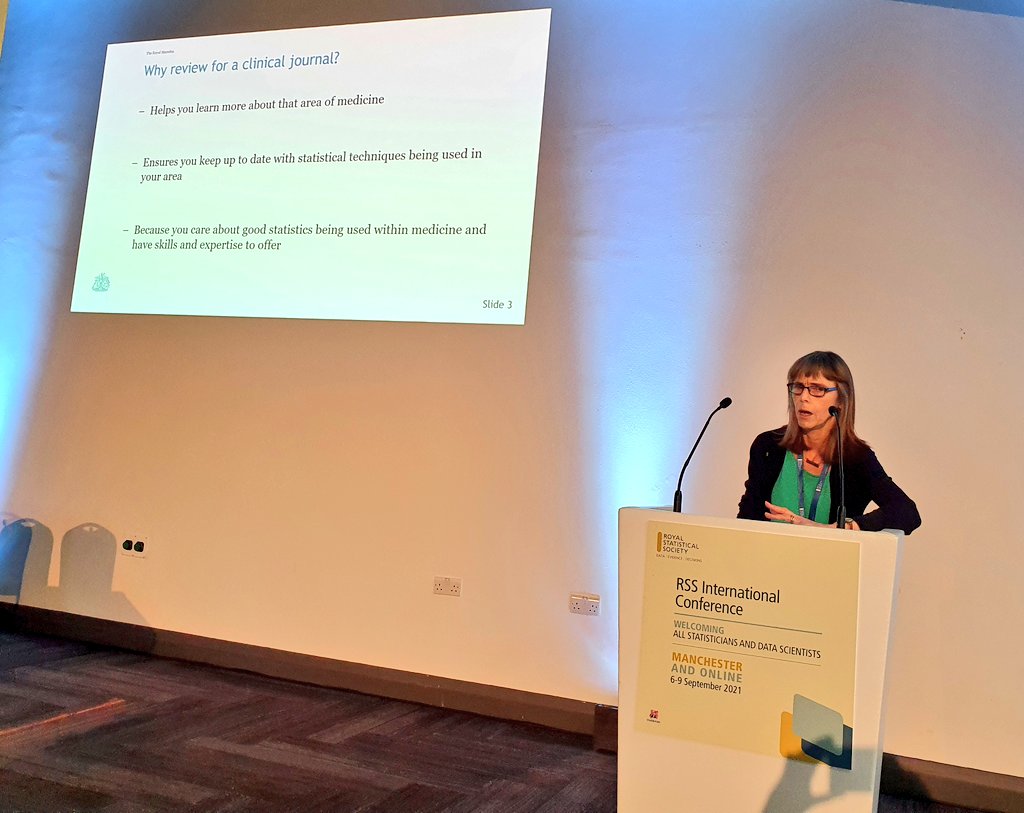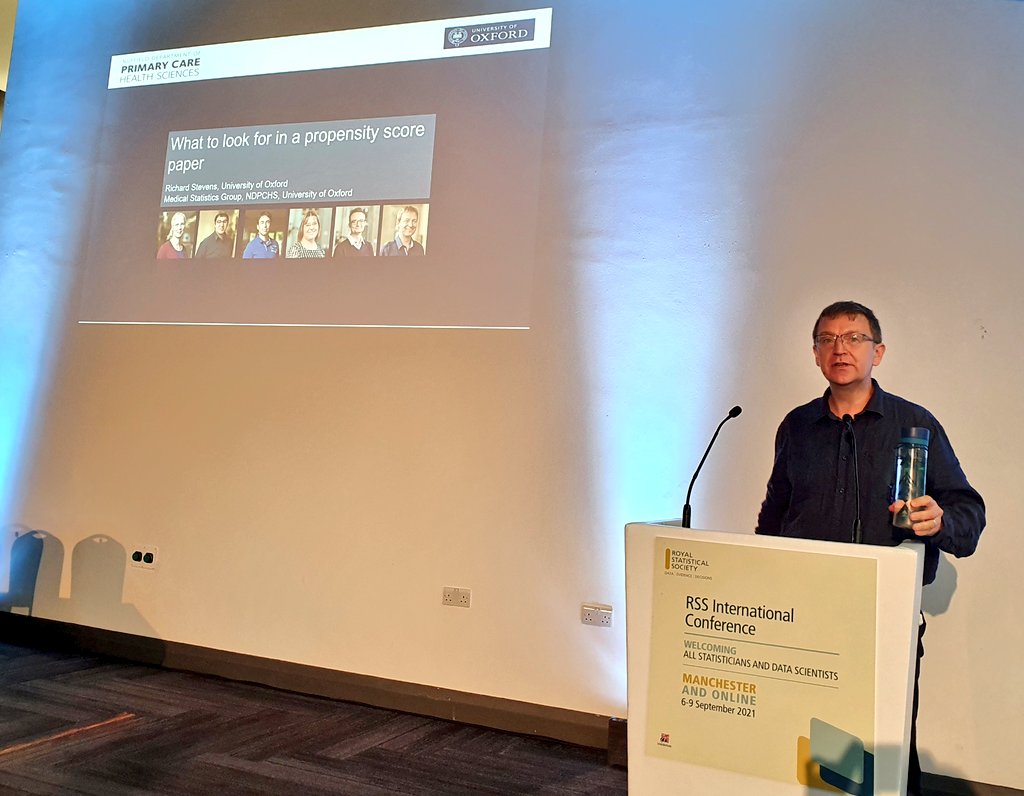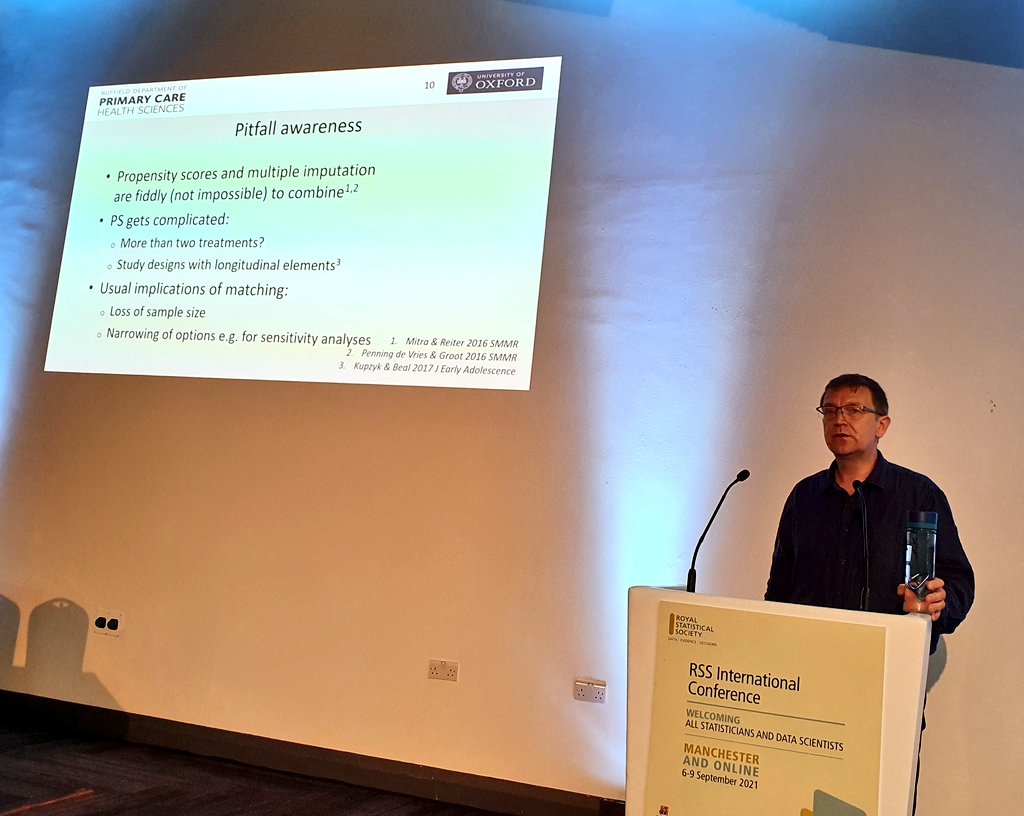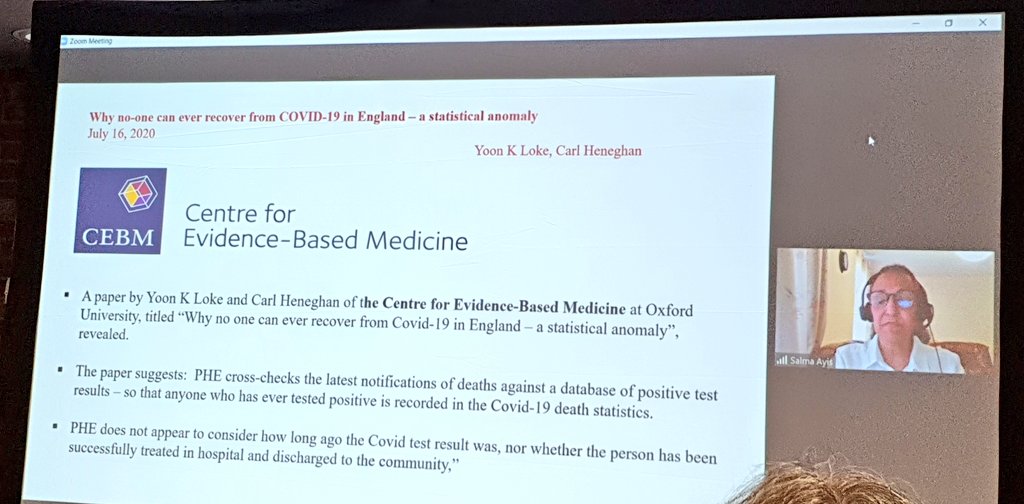
Attending #RSS2021Conf this morning?
Check out our Professional Development session on peer reviewing for clinical journals
10:50am, Exchange 11 and online
@I_M_Stratton @ebhcmedstats @MonaKanaan3 @CateyBunce @sjn_16 @RSSAnnualConf
Check out our Professional Development session on peer reviewing for clinical journals
10:50am, Exchange 11 and online
@I_M_Stratton @ebhcmedstats @MonaKanaan3 @CateyBunce @sjn_16 @RSSAnnualConf
https://twitter.com/RSSMedSection/status/1433102623448653826
Starting now! Our first speaker is @I_M_Stratton, reflecting on her passion for peer reviewing for clinical journals and the inspiration for this session 

Next, our #Medical section chair @MonaKanaan3 sharing some real peer review comments she has received. How dare she use so many complicated statistics?! 🤯 

Second #Medical section speaker @CateyBunce on why to review for clinical journals
- learning more about the field
- keeping up to date with methods
- using good statistical practice
- learning more about the field
- keeping up to date with methods
- using good statistical practice

Tips from @CateyBunce for reviewing
- communicate the type of error and the clinical impact of the error
- use general or subject specific materials available, such as:
bmj.com/specialties/st…
- communicate the type of error and the clinical impact of the error
- use general or subject specific materials available, such as:
bmj.com/specialties/st…

Third #Medical Section member @sjn_16, also one why to review
- training and personal development
- builds communication skills
- get an early look at new research
- spread the workload among statisticians
- training and personal development
- builds communication skills
- get an early look at new research
- spread the workload among statisticians

Tips from @sjn_16 on not being the dreaded #Reviewer2
- Be constructive, clear and nice
- Communicate the impact of the errors
- Suggest solutions
- Is it really an error, or just not how you would have done it?
- Be constructive, clear and nice
- Communicate the impact of the errors
- Suggest solutions
- Is it really an error, or just not how you would have done it?

Credit to @tmorris_mrc for the last two photos as @sjn_16 is doing these tweets!
The last speaker is Richard Stevens @ebhcmedstats giving an extended talk on peer reviewing papers using propensity scores 

Peer reviewing, particularly propensity scores, is often about solving a problem you didn't know you had
There are a number of pitfalls to be aware of!

There are a number of pitfalls to be aware of!


There are some common problems to look for every time, and some guidelines on what to look for in a results paper 



• • •
Missing some Tweet in this thread? You can try to
force a refresh








